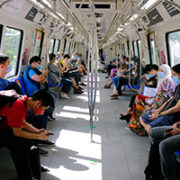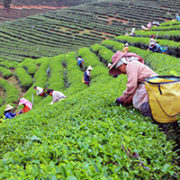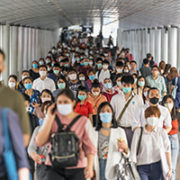Archive | Blog RSS feed for this section
Climate change, Economics, Environment, Finance sector development
 Health, Water
Health, Water
 Energy, Regional cooperation and integration
Energy, Regional cooperation and integration
 Governance and public sector management
Governance and public sector management
 Finance sector development, Governance and public sector management, Health, Regional cooperation and integration
Finance sector development, Governance and public sector management, Health, Regional cooperation and integration
 Agriculture and natural resources, Health, Social development and protection
Agriculture and natural resources, Health, Social development and protection
 Health, Poverty, Social development and protection
Health, Poverty, Social development and protection
 Gender, Poverty, Social development and protection
Gender, Poverty, Social development and protection
 Health, Poverty, Social development and protection
Health, Poverty, Social development and protection
 Poverty, Social development and protection
Poverty, Social development and protection

Exploring the link between climate change and sovereign risk

Climate change can have a material impact on sovereign risk through direct and indirect effects on public finances. In addition, climate change raises the cost of capital in climate vulnerable countries and threatens debt sustainability. Governments must climate-proof their economies and public finances or potentially face an ever-worsening spiral of climate vulnerability and unsustainable debt burdens.
COVID-19 reminds us to prioritize “water supply, sanitation, and hygiene” (WASH) to reduce child mortality

The coronavirus disease (COVID-19) has registered 959,116 deaths worldwide as of 21 September 2020. While the number is alarming, it is still not large compared with the 5.2 million children who died due to various causes in 2019, according to UNICEF. COVID-19 reminds us how much child mortality continues to be a significant challenge for global health and the global economy. In addition to the loss of human lives, the economic consequences are also significant.
Diversification of solar PV suppliers for sustainable energy during the COVID-19 crisis

Experts are increasingly acknowledging the vulnerability of the global solar photovoltaic (PV) value chain due to the concentration of manufacturing capacity in only a few countries, such as the People’s Republic of China (PRC) (Zhai 2020). In Japan, although solar power comprised only 7% of the country’s total power generation in 2018, it contributed to one-third of power from renewable sources. Given this high share of solar power in renewable energy sources, disruption in the availability of solar PV may have adverse consequences on the sustainability of renewable energy power generation.
Stepping up civil service reforms in Myanmar

The coronavirus disease (COVID-19) has highlighted the importance of the civil service but has also, ironically, hindered its reform activities. Civil service personnel will have to work with government leaders to find the right balance between addressing public health and economic concerns and implementing policies for mitigating the effects of the pandemic. It is crucial that the civil service is equipped with the capacity and mindset to address this crisis.
The impacts of COVID-19 on financial stability and regional financial safety nets in ASEAN

The Association of Southeast Asian Nations (ASEAN) is making strong efforts to maintain financial stability amid the coronavirus disease (COVID-19) pandemic, mostly through national financial emergency measures for each member state. As a region, ASEAN has not yet formed a regional financial safety net to deal with a crisis like COVID-19.
Enhancing agriculture potential in developing countries during the COVID-19 crisis

Much of the displaced labor force from urban centers is moving back to rural homes due to closures from restrictions put in place to combat the coronavirus disease (COVID-19). It is important that this displaced labor force is put in a working environment and kept engaged, specifically in the agricultural sector, so that such the young and energetic in the workforce are not left out. A disgruntled labor force without financial support might turn to unwanted or illegal activities.
COVID-19 hitting migration and remittances hard in developing Asia
By Aiko Kikkawa Takenaka, James Villafuerte, Raymond Gaspar and Badri Narayanan. Posted August 25, 2020

The coronavirus disease (COVID-19) pandemic has devastated economies worldwide, slashing jobs and incomes. The Asian Development Bank (ADB) (2020a) estimates that employment in Asia and the Pacific will fall by as much as 167 million jobs in 2020 should containment measures last 6 months from when the outbreak first intensified in the respective countries. In turn, wage incomes in the region are projected to fall from $359 billion to $550 billion.
How can trade liberalization boost women’s employment and well-being? An analysis of the Thai labor market

As the economy is a gendered structure, trade liberalization affects women and men differently in various dimensions and through different channels. Trade liberalization causes structural transformation in terms of production and, therefore, leads to changes in employment patterns and income. However, the effect of trade is heterogenous across different sectors.
Barefoot doctor 2.0: Making it happen

Over 50 years ago, a pioneering medical system was launched in the People’s Republic of China (PRC). Known as the “barefoot doctors” scheme, the program liberalized healthcare beyond doctors and allowed some 1.5 million community health workers to practice basic medicine after 3–6 months of training. This effectively created a national network of healthcare services for the very first time, increasing rural healthcare coverage to 90%.
Achieving a peaceful world: What can intellectuals do to make it happen?

The coronavirus disease (COVID-19) has brought the world together, although in a somewhat disturbing manner. Every individual on the planet is hoping for relief from the pandemic via a cure for the afflicted and a vaccine for prevention. Notwithstanding the urgency of addressing this immediate problem, the world economy and society should use this challenge to undertake initiatives that last longer and hopefully forever.


Search
Subscribe / Connect to Asia Pathways
Subjects
- Agriculture and natural resources
- Blog
- Capacity development
- Climate change
- Economics
- Education
- Energy
- Environment
- Finance sector development
- Gender
- Governance and public sector management
- Health
- Industry and trade
- Information and Communications Technology
- Infrastructure
- Miscellaneous
- Population
- Poverty
- Private sector development
- Regional cooperation and integration
- Sanitation
- Social development and protection
- Transport
- Uncategorized
- Urban development
- Video Blog
- Water




Recent Comments